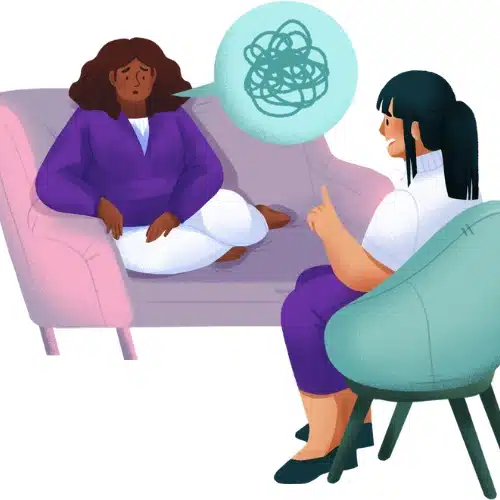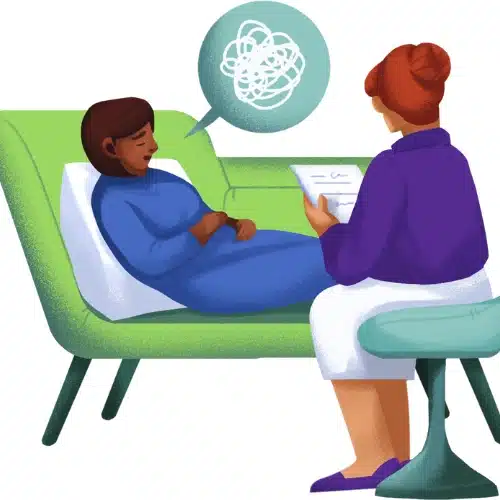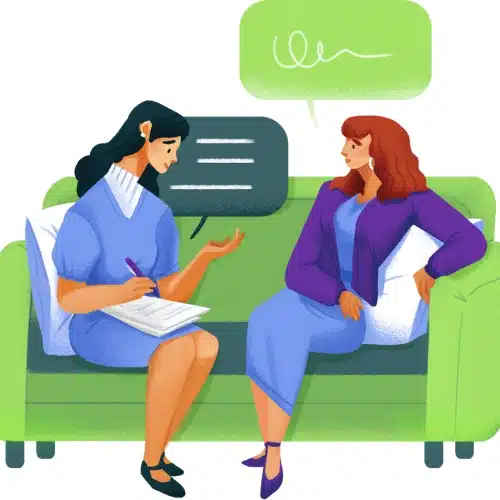Break the cycle. Reclaim your life.
Therapy for addiction. We understand that addiction is not a weakness, it’s a complex issue rooted in deep emotional and psychological patterns. Whether you’re struggling with alcohol, drugs, nicotine, gambling, or behavioural addictions such as food, social media, or pornography, our addiction therapy services are designed to help you break free and regain control of your life.



Ready to take the first step towards lasting change?
Contact us today to book your free discovery call or ask any questions, we’re here to help.
ADDICTION HYPNOTHERAPY CAN HELP WITH
Addiction can show up in many forms, some obvious, others more subtle, but all can have a powerful grip on your mental, emotional, and even physical wellbeing. We support clients across Spain in overcoming a wide range of addictive behaviours, from substance dependency to emotional and behavioural patterns that feel impossible to break. Whether you’ve been battling an addiction for years or are only just starting to recognise the signs, we’re here to help you make meaningful, lasting change. Our approach is not about judgement, it’s about understanding your story, your triggers, and helping you access the inner strength to reclaim control.
We recognise that addiction is often a symptom of something deeper, such as unresolved trauma, chronic stress, self-esteem issues, or emotional pain. That’s why our therapy goes beyond surface-level management. Through hypnotherapy, we gently work with your subconscious mind to identify the core beliefs and habits fuelling the addiction. By shifting those patterns, we empower you to live with more freedom, clarity, and confidence. Every treatment plan is personalised to your needs, helping you move forward at your own pace with guidance, support, and compassion.
 SMOKING & NICOTINE ADDICTION
SMOKING & NICOTINE ADDICTION
 PHONE & ELECTRONICS ADDICTION
PHONE & ELECTRONICS ADDICTION
 SOCIAL MEDIA ADDICTION
SOCIAL MEDIA ADDICTION
 PORNOGRAPHY ADDICTION
PORNOGRAPHY ADDICTION
WHAT IS ADDICTION HYPNOTHERAPY?
Addiction therapy is a structured form of psychological support that helps individuals overcome dependency on substances or behaviours that negatively impact their lives. Rather than focusing only on the addiction itself, therapy aims to uncover and address the underlying emotional, psychological, and behavioural patterns that contribute to the cycle of addiction.
At Hypnotherapist ES, our addiction therapy focuses on rewiring the subconscious mind, where deeply rooted habits and beliefs reside. Using hypnotherapy, we help clients break compulsive cycles, manage triggers, and develop healthier coping mechanisms. Whether you’re dealing with substance abuse or behavioural addictions, therapy can offer long-lasting, transformational change.
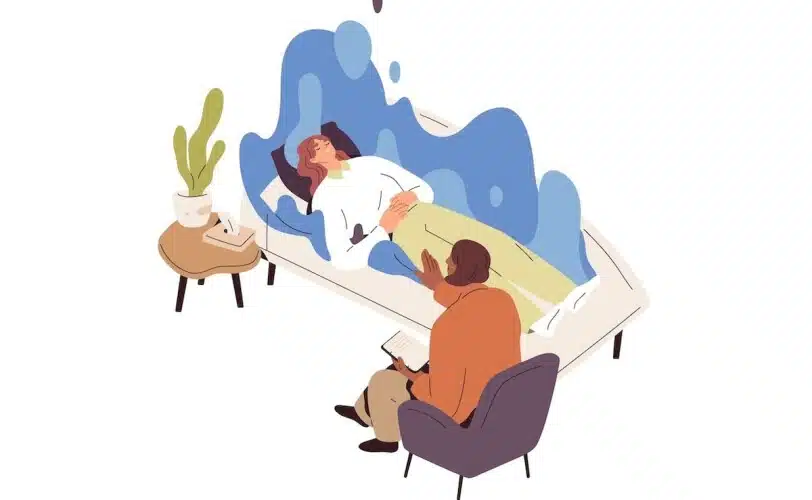
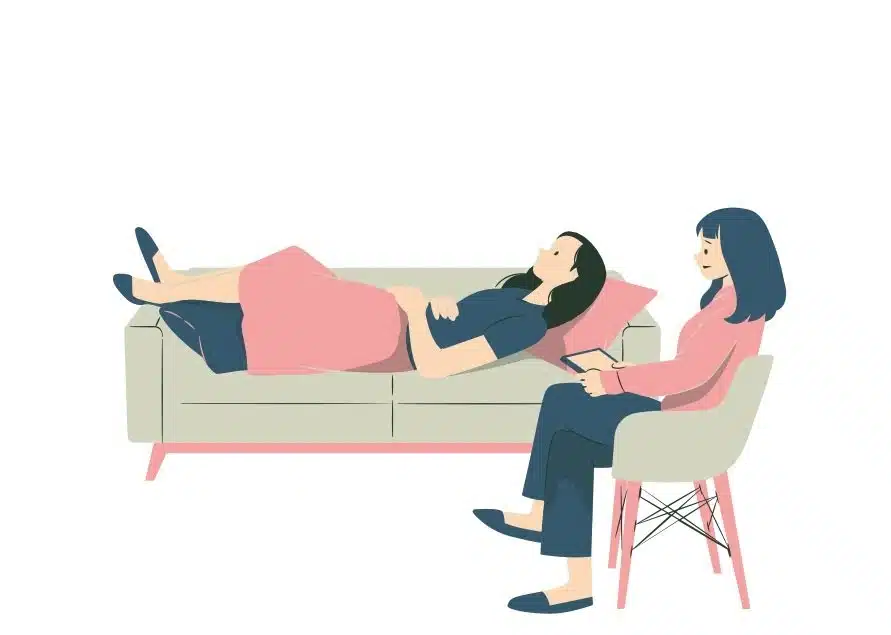
USING HYPNOTHERAPY TO STOP ADDICTION
Hypnotherapy is a powerful and proven tool for helping individuals overcome addiction by addressing the problem at its root, the subconscious mind. Unlike willpower alone, which often leads to temporary results, hypnotherapy works by uncovering and rewiring the deep-seated beliefs, emotional triggers, and behavioural patterns that drive addictive habits.
During a addiction hypnotherapy session, the mind enters a relaxed but highly focused state. In this state, the hypnotherapist can help you access the subconscious thoughts that fuel addiction, whether that’s a need for escape, self-soothing, or emotional avoidance, and replace them with healthier, more empowering beliefs. This creates real, lasting change from the inside out.

Looking for an Online Hypnotherapist?
Contact us today to book your free discovery call or ask any questions, we’re here to help.
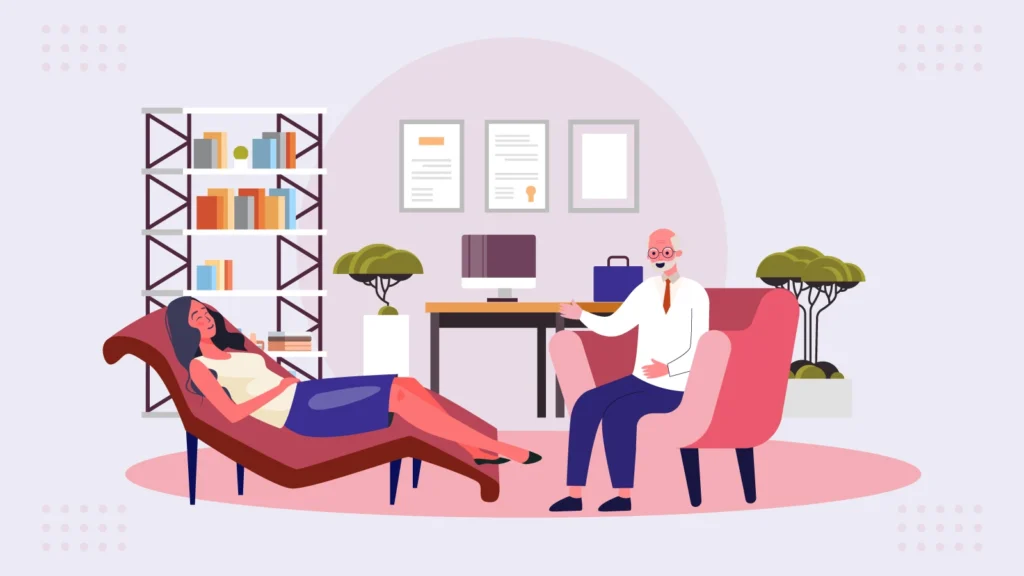
WHY CHOOSE HYPNOTHERAPY TO STOP ADDICTION
Hypnotherapy is a powerful and proven method for treating addiction by working directly with the subconscious mind, where habitual behaviours, cravings, and self-sabotaging beliefs are formed. In a safe, focused, and relaxed state, our qualified hypnotherapists guide you through a process of uncovering the root emotional causes of your addiction, helping you reframe them in a healthier, more empowering way.
Clients often report feeling lighter, more motivated, and more in control, sometimes even after just one session. Hypnotherapy helps to:
![]() Reduce or eliminate cravings
Reduce or eliminate cravings
![]() Rebuild self-esteem and motivation
Rebuild self-esteem and motivation
![]() Break unhealthy patterns of behaviour
Break unhealthy patterns of behaviour
![]() Address emotional triggers and trauma
Address emotional triggers and trauma
![]() Support long-term recovery and relapse prevention
Support long-term recovery and relapse prevention
COMMON ADDICTIONS WE HELP WITH, DAILY!
Every day, our specialist hypnotherapists guide individuals through the challenges of addictive behaviours, offering compassionate support and proven techniques to foster lasting change. Whether you’re caught in the cycle of cravings, struggling with overwhelming urges or simply seeking healthier habits, our tailored approach addresses the root causes of your dependency. With each session, you’ll gain clarity, regain control and develop the resilience needed to move forward with confidence.
We frequently help clients overcome a wide range of addictions, including but not limited to:
Tobacco and nicotine dependence (cigarettes, vaping, chewing tobacco), alcohol misuse, illicit substances (cocaine, heroin, methamphetamines, ecstasy), prescription medication overuse (opioids, benzodiazepines, stimulants), gambling (casinos, online betting, lotteries), gaming and internet compulsion, food‐related issues (binge eating, emotional eating, sugar cravings), compulsive shopping and spending, sex and pornography addiction, excessive caffeine intake, workaholism and burnout, exercise fixation, mobile phone and social‐media overuse, relationship or love dependency, and self‐harm or addictive coping habits such as nail-biting and hair-pulling. Each of these patterns can be gently reframed and reshaped through our evidence-based hypnotherapy methods.
If one or more of these challenges sound familiar, you’re not alone, and help is at hand. Get in touch today to arrange a free, no-obligation discovery call. Together, we’ll design a personalised programme that fits your lifestyle, supports your goals and sets you on the path to a life free from addiction.

How it Works
We offer availability with highly experienced therapists suited to your needs and book the appointment.
Meet the practitioner and begin the road to self-improvement. Have any concerns? Let us know so we can assist.
Find a Therapist in Spain

PROFESSIONAL ADDICTION HYPNOTHERAPY SERVICES
Before getting in touch, we kindly ask that you take a moment to read through our Addiction Therapy FAQs. Many common questions about how addiction therapy works, what to expect from hypnotherapy, session formats, and pricing are answered there. This allows us to respond more efficiently and ensures you have the key information you need before starting your journey towards recovery. Thank you for your understanding!
What are the key benefits of undertaking addiction therapy with a hypnotherapist?
 Choosing addiction therapy with a hypnotherapist offers a holistic, mind-centred approach that targets the subconscious drivers of compulsive behaviour. By entering a relaxed, trance-like state, clients can reframe unhelpful thought patterns, reduce emotional triggers and strengthen internal resources for resilience. This method is non-invasive and drug-free, making it suitable for those who prefer to avoid medication or who wish to complement existing treatments. Beyond symptom relief, hypnotherapy fosters self-empowerment: you learn practical techniques to manage stress, cravings and relapse risk long after the formal sessions end. The collaborative nature of the work also means each programme is tailored precisely to your goals, ensuring maximum relevance and engagement.
Choosing addiction therapy with a hypnotherapist offers a holistic, mind-centred approach that targets the subconscious drivers of compulsive behaviour. By entering a relaxed, trance-like state, clients can reframe unhelpful thought patterns, reduce emotional triggers and strengthen internal resources for resilience. This method is non-invasive and drug-free, making it suitable for those who prefer to avoid medication or who wish to complement existing treatments. Beyond symptom relief, hypnotherapy fosters self-empowerment: you learn practical techniques to manage stress, cravings and relapse risk long after the formal sessions end. The collaborative nature of the work also means each programme is tailored precisely to your goals, ensuring maximum relevance and engagement.
![]() Targets deep-seated beliefs and emotional triggers at the subconscious level
Targets deep-seated beliefs and emotional triggers at the subconscious level
![]() Non-pharmacological and free from medication side effects
Non-pharmacological and free from medication side effects
![]() Personalised suggestions and metaphors aligned with your unique needs
Personalised suggestions and metaphors aligned with your unique needs
![]() Teaches self-hypnosis tools for ongoing self-management
Teaches self-hypnosis tools for ongoing self-management
![]() Accelerates habit change by bypassing conscious resistance
Accelerates habit change by bypassing conscious resistance
![]() Enhances confidence, motivation and coping skills
Enhances confidence, motivation and coping skills
![]() Complements other therapies and integrates with multidisciplinary care
Complements other therapies and integrates with multidisciplinary care
How effective is hypnotherapy in treating addiction compared to other approaches?
 Hypnotherapy has demonstrated significant efficacy as both a standalone intervention and an adjunct to conventional treatments. Numerous clinical trials report measurable reductions in substance use and behavioural addictions, often in fewer sessions than traditional therapies. Meta-analyses indicate that hypnosis can enhance outcomes when combined with cognitive-behavioural approaches, particularly in managing cravings and preventing relapse. Unlike purely talk-based therapies, hypnotherapy works directly with the subconscious mind, which can speed up the internalisation of new coping strategies. That said, its success depends on practitioner expertise and client engagement; when delivered by a qualified professional within a structured programme, hypnotherapy can match or exceed the effectiveness of other modalities, with the added benefits of minimal side effects and lasting self-management skills.
Hypnotherapy has demonstrated significant efficacy as both a standalone intervention and an adjunct to conventional treatments. Numerous clinical trials report measurable reductions in substance use and behavioural addictions, often in fewer sessions than traditional therapies. Meta-analyses indicate that hypnosis can enhance outcomes when combined with cognitive-behavioural approaches, particularly in managing cravings and preventing relapse. Unlike purely talk-based therapies, hypnotherapy works directly with the subconscious mind, which can speed up the internalisation of new coping strategies. That said, its success depends on practitioner expertise and client engagement; when delivered by a qualified professional within a structured programme, hypnotherapy can match or exceed the effectiveness of other modalities, with the added benefits of minimal side effects and lasting self-management skills.
![]() Clinical studies show significant reductions in substance use and compulsive behaviours
Clinical studies show significant reductions in substance use and compulsive behaviours
![]() Often achieves measurable change in fewer sessions than standard talk therapies
Often achieves measurable change in fewer sessions than standard talk therapies
![]() Meta-analyses highlight enhanced relapse prevention when paired with CBT
Meta-analyses highlight enhanced relapse prevention when paired with CBT
![]() Direct access to subconscious mind accelerates adoption of new patterns
Direct access to subconscious mind accelerates adoption of new patterns
![]() Minimal side-effect profile compared to pharmacotherapy
Minimal side-effect profile compared to pharmacotherapy
![]() Efficacy closely tied to therapist training, session structure and client commitment
Efficacy closely tied to therapist training, session structure and client commitment
![]() Provides durable self-management skills through self-hypnosis exercises
Provides durable self-management skills through self-hypnosis exercises
What exactly is hypnotherapy for addiction, and how does it differ from other treatments?
 Hypnotherapy for addiction is a therapeutic approach that uses guided relaxation and focused attention to reach a trance-like state, enabling direct communication with the subconscious mind. In this state, we can identify and reframe the underlying thoughts, memories and beliefs that perpetuate addictive behaviours. Unlike pharmacological treatments, which target chemistry, or cognitive-behavioural therapy, which works primarily at the conscious level, hypnotherapy addresses deep-seated drivers of addiction. It offers a gentle, non-invasive complement to standard programmes, harnessing the mind’s own capacity for change. Clients often report accelerated progress because suggestions given in trance can take root more readily than conscious affirmations.
Hypnotherapy for addiction is a therapeutic approach that uses guided relaxation and focused attention to reach a trance-like state, enabling direct communication with the subconscious mind. In this state, we can identify and reframe the underlying thoughts, memories and beliefs that perpetuate addictive behaviours. Unlike pharmacological treatments, which target chemistry, or cognitive-behavioural therapy, which works primarily at the conscious level, hypnotherapy addresses deep-seated drivers of addiction. It offers a gentle, non-invasive complement to standard programmes, harnessing the mind’s own capacity for change. Clients often report accelerated progress because suggestions given in trance can take root more readily than conscious affirmations.
![]() Works directly with the subconscious motivations behind addiction
Works directly with the subconscious motivations behind addiction
![]() Complements rather than replaces medication or CBT
Complements rather than replaces medication or CBT
![]() Uses relaxation and imagery to reprogram unhelpful patterns
Uses relaxation and imagery to reprogram unhelpful patterns
![]() Non-invasive, drug-free, and tailored to individual needs
Non-invasive, drug-free, and tailored to individual needs
![]() Often yields faster subjective relief of cravings and urges
Often yields faster subjective relief of cravings and urges
How many sessions will I need before I start to notice a change in my addictive behaviour?
 Every individual’s journey is unique, but most clients begin to notice subtle shifts in craving intensity or self-talk after two to three sessions. A typical treatment plan spans four to eight weekly appointments, allowing time to establish rapport, introduce tailored suggestions and reinforce new neural pathways. Some clients require fewer sessions if motivation is strong and triggers are well defined; others may benefit from additional booster sessions to consolidate gains, particularly if long-standing habits are involved. Progress is also influenced by your engagement with between-session exercises and recordings. Ultimately, we’ll review your goals together after each meeting to ensure you’re achieving meaningful, sustainable change.
Every individual’s journey is unique, but most clients begin to notice subtle shifts in craving intensity or self-talk after two to three sessions. A typical treatment plan spans four to eight weekly appointments, allowing time to establish rapport, introduce tailored suggestions and reinforce new neural pathways. Some clients require fewer sessions if motivation is strong and triggers are well defined; others may benefit from additional booster sessions to consolidate gains, particularly if long-standing habits are involved. Progress is also influenced by your engagement with between-session exercises and recordings. Ultimately, we’ll review your goals together after each meeting to ensure you’re achieving meaningful, sustainable change.
![]() Initial relief often experienced after 2–3 sessions
Initial relief often experienced after 2–3 sessions
![]() Standard programmes run 4–8 appointments, weekly or fortnightly
Standard programmes run 4–8 appointments, weekly or fortnightly
![]() Booster sessions available for long-standing or complex addictions
Booster sessions available for long-standing or complex addictions
![]() Progress linked to your commitment and between-session practice
Progress linked to your commitment and between-session practice
![]() Flexible scheduling to adjust frequency based on results
Flexible scheduling to adjust frequency based on results
Can hypnotherapy help with any type of addiction (e.g. alcohol, smoking, gambling)?
 Yes. Hypnotherapy is versatile and can be tailored to address virtually any behavioural or substance-related addiction. Whether you’re struggling with alcohol, tobacco, caffeine, gambling, overeating, digital dependencies or other compulsive habits, the underlying principles are the same: reshape subconscious associations, strengthen coping resources and weaken conditioned triggers. By working with personalised metaphors and symptom-focused suggestions, we can target the specific mechanisms of each addiction type. That said, multi-modal support may be advisable in severe cases—so we’ll always collaborate with your existing care team when necessary to ensure a safe, integrated approach.
Yes. Hypnotherapy is versatile and can be tailored to address virtually any behavioural or substance-related addiction. Whether you’re struggling with alcohol, tobacco, caffeine, gambling, overeating, digital dependencies or other compulsive habits, the underlying principles are the same: reshape subconscious associations, strengthen coping resources and weaken conditioned triggers. By working with personalised metaphors and symptom-focused suggestions, we can target the specific mechanisms of each addiction type. That said, multi-modal support may be advisable in severe cases—so we’ll always collaborate with your existing care team when necessary to ensure a safe, integrated approach.
![]() Effective for both substance (alcohol, nicotine, caffeine) and behavioural addictions (gambling, gaming, eating)
Effective for both substance (alcohol, nicotine, caffeine) and behavioural addictions (gambling, gaming, eating)
![]() Uses tailored suggestions and metaphors for each addictive pattern
Uses tailored suggestions and metaphors for each addictive pattern
![]() Addresses emotional triggers such as stress, boredom or social cues
Addresses emotional triggers such as stress, boredom or social cues
![]() Integrates smoothly with medical or psychological support if required
Integrates smoothly with medical or psychological support if required
![]() Can be delivered in person or remotely, adapting to your circumstances
Can be delivered in person or remotely, adapting to your circumstances
Is hypnotherapy scientifically proven to work for addiction?
 A growing body of peer-reviewed research supports hypnotherapy’s efficacy in reducing cravings, supporting abstinence and improving relapse prevention. Clinical trials have demonstrated meaningful reductions in cigarette consumption, alcohol intake and binge-eating episodes following structured hypnosis protocols. While the evidence base is still evolving compared with more established therapies, professional bodies such as the British Society of Clinical and Academic Hypnosis recognise it as an adjunctive tool. Importantly, hypnotherapy’s success hinges on practitioner skill and client engagement—so choosing a qualified, accredited therapist ensures you’re drawing on evidence-based techniques rather than untested scripts.
A growing body of peer-reviewed research supports hypnotherapy’s efficacy in reducing cravings, supporting abstinence and improving relapse prevention. Clinical trials have demonstrated meaningful reductions in cigarette consumption, alcohol intake and binge-eating episodes following structured hypnosis protocols. While the evidence base is still evolving compared with more established therapies, professional bodies such as the British Society of Clinical and Academic Hypnosis recognise it as an adjunctive tool. Importantly, hypnotherapy’s success hinges on practitioner skill and client engagement—so choosing a qualified, accredited therapist ensures you’re drawing on evidence-based techniques rather than untested scripts.
![]() Peer-reviewed studies show reductions in smoking, drinking and binge behaviour
Peer-reviewed studies show reductions in smoking, drinking and binge behaviour
![]() Recognised by professional hypnosis associations in the UK and Europe
Recognised by professional hypnosis associations in the UK and Europe
![]() Works best when combined with behavioural support and aftercare
Works best when combined with behavioural support and aftercare
![]() Efficacy linked to practitioner training and session structure
Efficacy linked to practitioner training and session structure
![]() Clients’ active participation boosts long-term outcomes
Clients’ active participation boosts long-term outcomes
What does a typical session involve, and how long does it last?
 A standard addiction-focused hypnotherapy session lasts 60 minutes. We begin with a brief check-in to explore your week’s challenges, review progress and clarify objectives for the session. Next, you’ll be guided into a relaxed, trance-like state through progressive breathing and imagery. Once you’re comfortable and focused, I’ll deliver personalised suggestions designed to weaken addictive associations and strengthen coping mechanisms. The session concludes with a gentle return to full alertness, followed by a short debrief to discuss your experience and any insights gained. You’ll also receive practical exercises or audio recordings to reinforce the work between appointments.
A standard addiction-focused hypnotherapy session lasts 60 minutes. We begin with a brief check-in to explore your week’s challenges, review progress and clarify objectives for the session. Next, you’ll be guided into a relaxed, trance-like state through progressive breathing and imagery. Once you’re comfortable and focused, I’ll deliver personalised suggestions designed to weaken addictive associations and strengthen coping mechanisms. The session concludes with a gentle return to full alertness, followed by a short debrief to discuss your experience and any insights gained. You’ll also receive practical exercises or audio recordings to reinforce the work between appointments.
![]() 60-minute format: check-in, induction, suggestion, emergence, debrief
60-minute format: check-in, induction, suggestion, emergence, debrief
![]() Progressive relaxation and imagery for trance induction
Progressive relaxation and imagery for trance induction
![]() Targeted suggestions to reframe triggers and urges
Targeted suggestions to reframe triggers and urges
![]() Debrief to share insights and set between-session tasks
Debrief to share insights and set between-session tasks
![]() Custom audio recordings provided for home practice
Custom audio recordings provided for home practice
Will I be fully conscious during the hypnosis, or is it like being asleep?
 Hypnotherapy is not the same as sleep; rather, it’s akin to a state of focused relaxation and heightened suggestibility. You remain fully aware of your surroundings and can choose to open your eyes or speak at any point. Most clients describe the experience as similar to being engrossed in a book or film, intensely relaxed yet mentally alert. Far from losing control, you retain autonomy throughout, rejecting any suggestions that conflict with your values. This conscious collaboration ensures safety and transparency, making hypnosis a comfortable and empowering process rather than a passive, “out-of-control” experience.
Hypnotherapy is not the same as sleep; rather, it’s akin to a state of focused relaxation and heightened suggestibility. You remain fully aware of your surroundings and can choose to open your eyes or speak at any point. Most clients describe the experience as similar to being engrossed in a book or film, intensely relaxed yet mentally alert. Far from losing control, you retain autonomy throughout, rejecting any suggestions that conflict with your values. This conscious collaboration ensures safety and transparency, making hypnosis a comfortable and empowering process rather than a passive, “out-of-control” experience.
![]() Remain aware and in control at all times
Remain aware and in control at all times
![]() Comparable to daydreaming or deep meditation
Comparable to daydreaming or deep meditation
![]() You can open eyes, speak or end the trance whenever you wish
You can open eyes, speak or end the trance whenever you wish
![]() Suggestions that clash with your values will be automatically rejected
Suggestions that clash with your values will be automatically rejected
![]() Safe, collaborative process with mutual consent
Safe, collaborative process with mutual consent
Do you provide recordings or exercises to practise between sessions?
 Absolutely. To consolidate progress, I create bespoke self-hypnosis audio recordings tailored to your specific triggers and goals. You’ll receive these as downloadable MP3 files after each session, along with written exercises, such as journalling prompts, mindfulness drills or visualisation scripts, to embed new thought patterns. Regular use of these tools has been shown to deepen trance-state receptivity and reinforce neural changes, making your hypnotic work more resilient to daily stressors.
Absolutely. To consolidate progress, I create bespoke self-hypnosis audio recordings tailored to your specific triggers and goals. You’ll receive these as downloadable MP3 files after each session, along with written exercises, such as journalling prompts, mindfulness drills or visualisation scripts, to embed new thought patterns. Regular use of these tools has been shown to deepen trance-state receptivity and reinforce neural changes, making your hypnotic work more resilient to daily stressors.
![]() Custom MP3 self-hypnosis recordings after each session
Custom MP3 self-hypnosis recordings after each session
![]() Written exercises: journalling prompts, mindfulness drills, visualisations
Written exercises: journalling prompts, mindfulness drills, visualisations
![]() Guidance on ideal practice frequency and duration
Guidance on ideal practice frequency and duration
![]() Tips for creating a conducive home environment
Tips for creating a conducive home environment
![]() Support via brief email check-ins on your practice
Support via brief email check-ins on your practice
Where do you offer your addiction therapy services?
 We offer in-person addiction hypnotherapy across every corner of Spain, from the sun-drenched Costa del Sol to the buzzing metropolises and tranquil island retreats, and, of course, via secure online sessions for anyone, anywhere in the country.
We offer in-person addiction hypnotherapy across every corner of Spain, from the sun-drenched Costa del Sol to the buzzing metropolises and tranquil island retreats, and, of course, via secure online sessions for anyone, anywhere in the country.
On the Costa del Sol our clinics are located in Málaga itself and the surrounding resort towns of Torremolinos, Benalmádena, Fuengirola, Mijas and Nerja (including Frigiliana and Rincón de la Victoria). Further along the coast you’ll find us in Marbella, Estepona, Casares, Manilva and Sotogrande, ensuring easy access whether you live locally or are simply visiting.
In Andalusia more broadly, our practitioners work in Seville, Granada, Córdoba, Cádiz, Huelva, Almería and Jaén. Moving east, the Valencian Community is served from our centres in Valencia, Alicante and Castellón de la Plana. Madrid and its suburbs host several of our central-Spain clinics, while Catalonia welcomes clients in Barcelona, Girona, Lleida and Tarragona.
Northern Spain is covered too: Galicia (A Coruña, Santiago de Compostela, Vigo, Ourense, Pontevedra and Lugo), the Basque Country (Bilbao, San Sebastián and Vitoria-Gasteiz), and Aragón (Zaragoza, Huesca and Teruel). We also have therapists in Navarre’s Pamplona and La Rioja’s Logroño, as well as in Extremadura’s Mérida, Badajoz and Cáceres.
Castile’s historic heartlands are not forgotten: Castilla-La Mancha (Toledo, Albacete, Ciudad Real, Cuenca and Guadalajara) and Castilla y León (Valladolid, León, Burgos, Salamanca, Segovia, Ávila, Palencia, Zamora and Soria) all host accredited clinics. In the Region of Murcia our practice in the city of Murcia serves both urban and rural clients alike.
On the islands our reach extends to the Balearics—Palma de Mallorca, Ibiza Town and Mahón—and throughout the Canary archipelago: Tenerife (Santa Cruz de Tenerife and San Cristóbal de La Laguna), Gran Canaria (Las Palmas de Gran Canaria), Lanzarote (Arrecife), Fuerteventura (Puerto del Rosario), La Palma (Santa Cruz de La Palma), La Gomera (San Sebastián de La Gomera) and El Hierro (Valverde). We even serve Spain’s autonomous cities of Ceuta and Melilla.
If you prefer complete flexibility, our fully secure virtual appointments can be booked from anywhere in Spain—simply let us know when you’d like to begin, and we’ll send you a private link so you can connect from the comfort of your own home.
